I’ve been seeing outdoor advertisements for OLLY “wellness” supplements around San Francisco lately — there are huge posters over the entrances to the Salesforce Transit Center (one says “Protect Your Peace, Vigorously”; another reads “Manifest Better Sleep”), a billboard on Van Ness Avenue north of the Civic Center (“For Nights You Can’t Stop Doomscrolling”), and this sextet of ads on Columbus Avenue in North Beach.
Something about the ads seemed familiar. And then it dawned on me: It’s not just this brand. I’ve been seeing variants of “Olly” all over:
OLLI, the Osher Lifelong Learning Institutes for “seasoned adults,” founded in 2001.
Olli Salumeria, a salami manufacturer founded in 2010 in Richmond, Virginia, and now based in Oceanside, California.
Olipop “healthy prebiotic soda,” launched in 2018 and headquartered in Oakland, California.
Ollie, a “fresh & healthy, human-grade dog food delivery” company, founded in 2016 and based in Reno, Nevada.
You can also find an OLLI brand of travel mugs and, until recently, an OLLI self-driving shuttle vehicle (Local Motors, the Phoenix-based company that made it, shut down in 2022).
I’m a little bit obsessed with copycat naming trends — remember those -less titles? the weeks of Monday brands? the un- onslaught? — so I set out to learn how each of the OLLI/OLLIE/OLI names came to be, and why the name is so popular.
Let’s take the most transparent brand stories first.
The lifelong-learning OLLI is an easy-to-spell, easy-to remember acronym that incorporates the surname of its founder, businessman and philanthropist Bernard Osher. (Still going strong at 98!) Yes, it could have been the Osher Institute for Lifelong Learning, but “OILL” would have been decidedly less simpático.
Olli Salumeria derives its name from the nickname of company founder Oliviero Colmignoli, whose full name is probably a bit of a mouthful for English-only Americans.
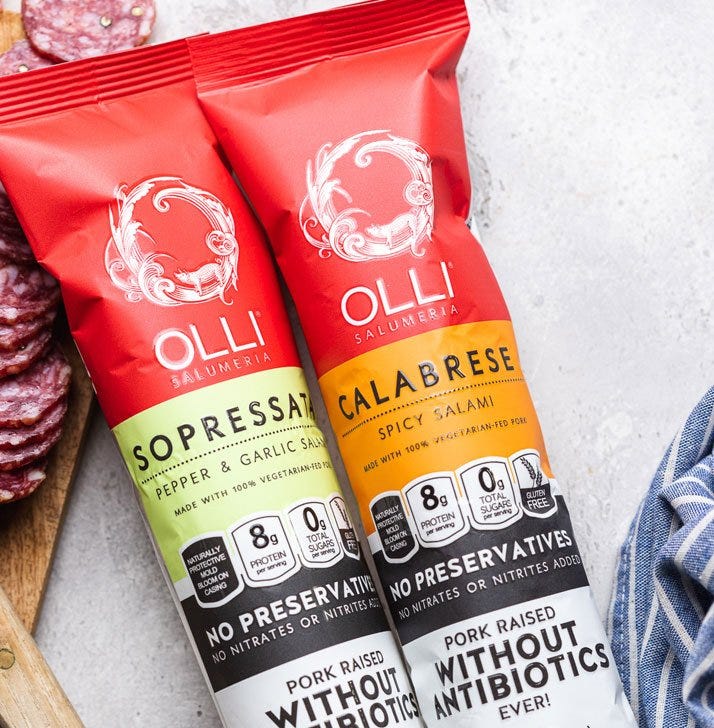
OLIPOP beverages come with a name-creation tale:
The story goes that our co-founders, Ben and David, were sitting around a table throwing around ideas for what their epic new prebiotic soda should be called. How could they come up with a fun way to convey to people that they were drinking a delicious, familiar beverage with a scientific twist? That's when David had an idea. Ben was always geeking out about oligosaccharides, a type of microbiome-supporting prebiotic we use in OLIPOP, so David thought, “why not use that?” So they did.
I’m sure the similarity to lollipop was purely coincidental, right? Let’s be grateful the founders didn’t go for OLIGOPOP, the beverage choice of the oligopoly.
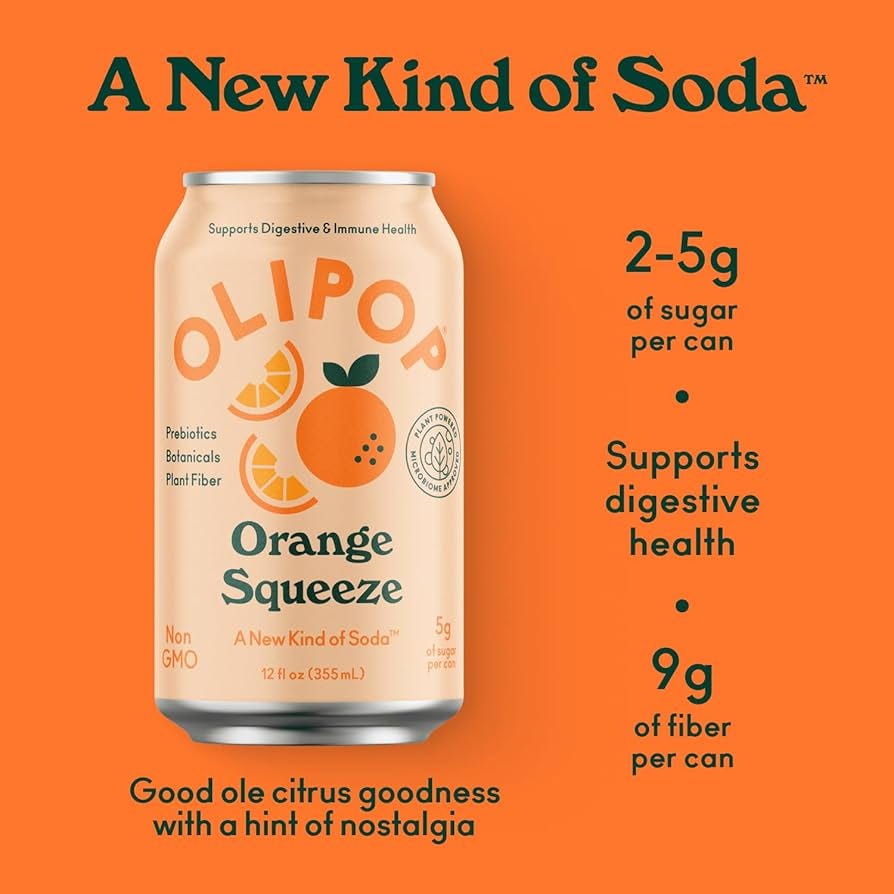
The OLLY supplements company was founded in 2013 by Eric Ryan, who had previously founded and sold the Method household-cleaning products business. Here’s what a Wikipedia entry says about the OLLY name:
“Olly” was chosen as the name of the company as it was neither “pharma-sounding” or “folksy.” The packaging of the vitamins was also made to be bright and feature a smiley face on the O in Olly.
In other words: It’s an empty-vessel name that’s short and perky-sounding.
The company is headquartered in San Francisco.

As for OLLIE “human-grade dog food,” I’ve been unable to trace its origin. An homage, or caninage, to a beloved pet? Uncertain. Co-founders Gabby Slome and Alex Douzet were dog owners when they launched the company, but Slome’s dog was called Pancho and I don’t know what Douzet’s dog was called.
Maybe OLLIE just sounds “friendly” and “dog-like” in that peculiar 21st-century way: Americans are giving their kids classic dog names (Bear, Duke, Lady), and their dogs traditional human names (Max, Stella, Jeff).
I do commend the company for its editorial commitment to the theme: “we’ll fetch your answer”; “sniff out exclusive offers”; “we work with dogged determination.”
That’s the “what” of this naming trend. What about the “why”?
A few observations:
In American English, the first syllable of “Olly” (et al.) sounds exactly like “all” and the first syllable of “always” — two welcoming, reassuring words in branding.
Brand-name trends often mirror baby-name trends, and “Ollie” for both boys and girls has seen a modest uptick since 2010, rising into the top 1,500 U.S. baby names. That’s minor compared to Ollie’s popularity for both sexes in the 1880s — it was huge then — but still notable.1
Did the 2018 Laurel-and-Hardy biopic influence brand- and baby-naming trends?
![Stan and Ollie [DVD] [2019] Stan and Ollie [DVD] [2019]](https://substackcdn.com/image/fetch/$s_!0lmt!,w_1456,c_limit,f_auto,q_auto:good,fl_progressive:steep/https%3A%2F%2Fsubstack-post-media.s3.amazonaws.com%2Fpublic%2Fimages%2F47dec939-4ec3-4a6d-adab-7fe9a5c89e0d_706x1000.jpeg)
Could be — it was a modest hit, earning $29 million on a $10 million budget. If it had an effect on naming trends, it extended only to Ollie namesakes: “Stan” and “Stanley” peaked in the 1910s and have never regained their popularity.2 The preference for “Ollie” is predicted by baby-name expert Laura Wattenberg’s theory of “liquid” or “raindrop” names:
[They are] fluid and sinuous, with no bumps, stops or hisses obstructing the flow of sound. … To keep the name from bogging down, any two consonant sounds must be separated by a vowel. The name Aaliyah, clocking in at seven letters with just a single consonant sound, is a perfect liquid example.
Aaliyah is just one syllable away from Ollie!
Finally, let’s not overlook the echo of the age-old children’s chant Olly olly oxen free, a “truce term” that invites players to come out from hiding or signals the end of a game. According to Wikipedia:
The origin of the phrase is unknown. The Dictionary of American Regional English says the phrase may be derived from all ye, all ye outs in free, all the outs in free, or possibly ”calling all the outs in free”; in other words, all who are out may come in without penalty. Others speculate the phrase may be a corruption of a hypothetical and ungrammatical German phrase alle, alle, auch sind frei (all, all, also are free).
Be sure to see the rest of that Wikipedia entry for a list of ways in which the phrase has entered popular culture. Maybe the current crop of “olly” brand names should be added to the roster.
Not visible on the graph: “Ollie” as a nickname for Olivia (which has never ranked below #5 among girls’ names since 2000) and Oliver (in the top 10 for boys since 2010).
Except, of course, in lower-case stan: an obsessive fan. The slang term has its origins in a 2000 song by rapper Eminem and was added to Merriam-Webster in 2019.

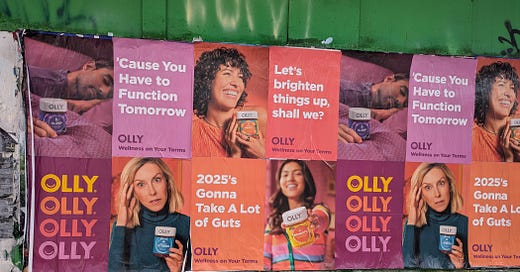




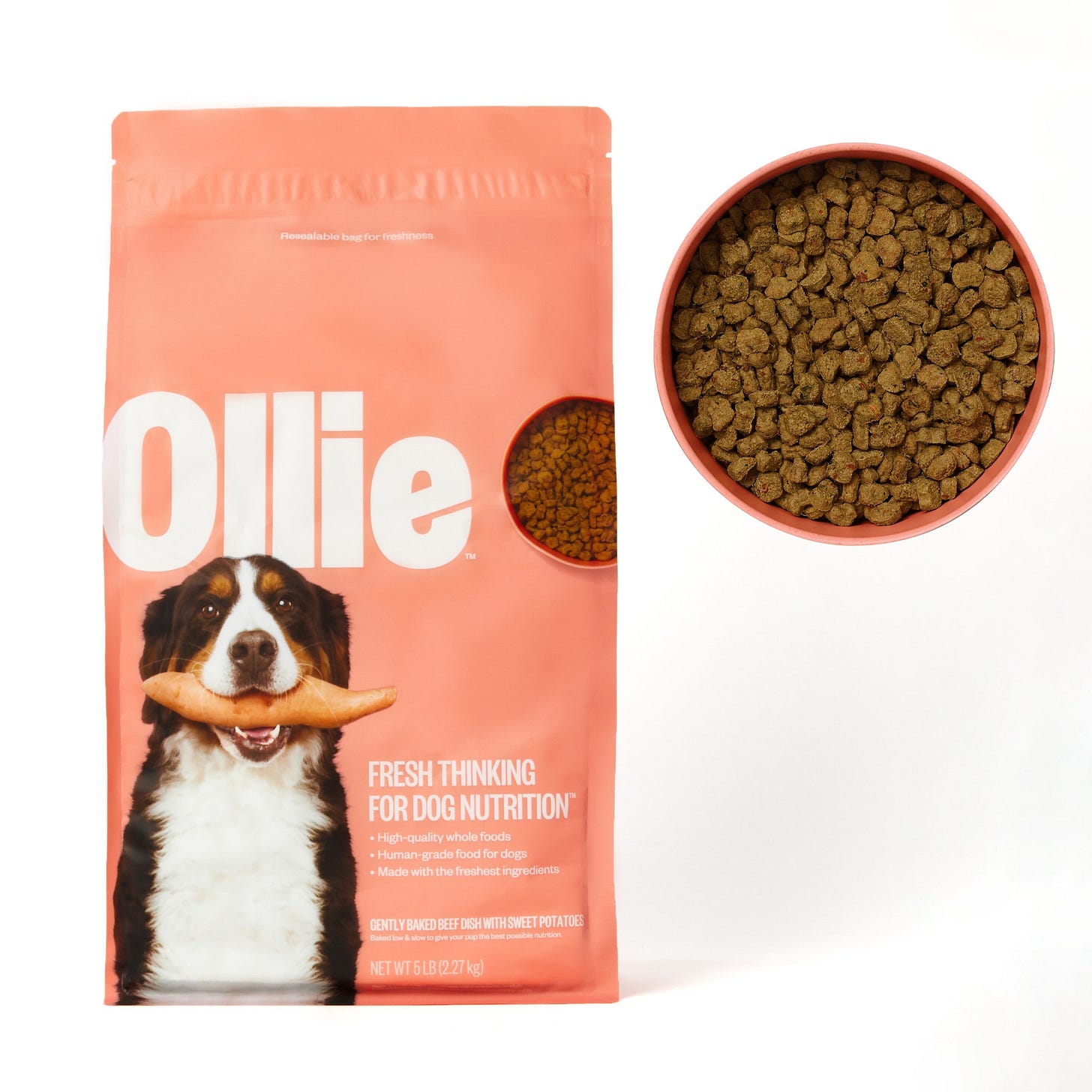
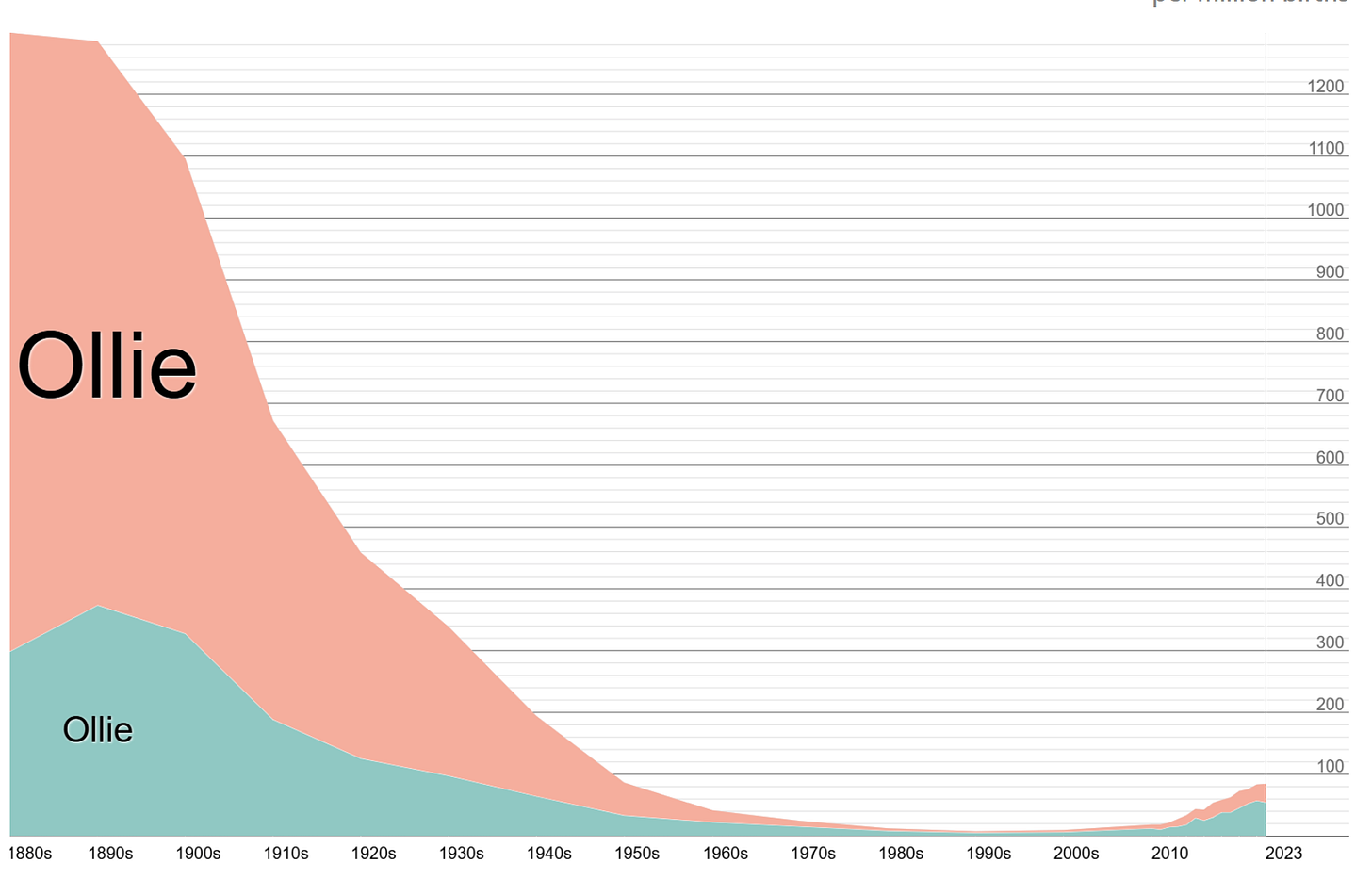
As the (human) mom to a Havanese named Ollie, and who lives in an apartment below a Labradoodle named Ollie, and who had a hairdresser whose mutt was named Oliver (NOT Ollie, most definitely), I offer my standard answer to why some names become popular.
Contagion. And because Boomers were so ubiquitous (Susans and Davids were so common in our groups we referred to them by their last names), certain names become wildly popular simply because of their ubiquity. Boomers have lost influence; no matter: their children, the Millennials and GenX are a large enough cohort to repeat the trend (know any kids born in the last decade or so named Noah? I thought so).
"Also, the cutesification of “old” as “ole”..."
I'm glad you pointed this out. I was wondering what new fruit ole (missing an accent on the 'e'?) citrus was! Yes: teeth on edge!